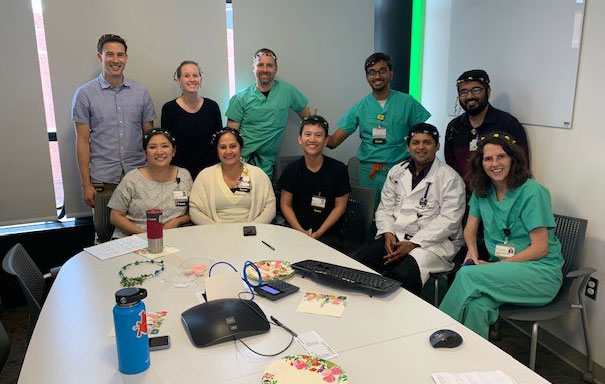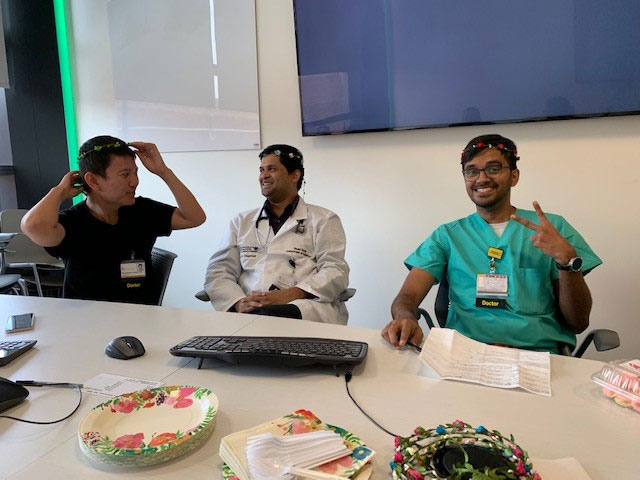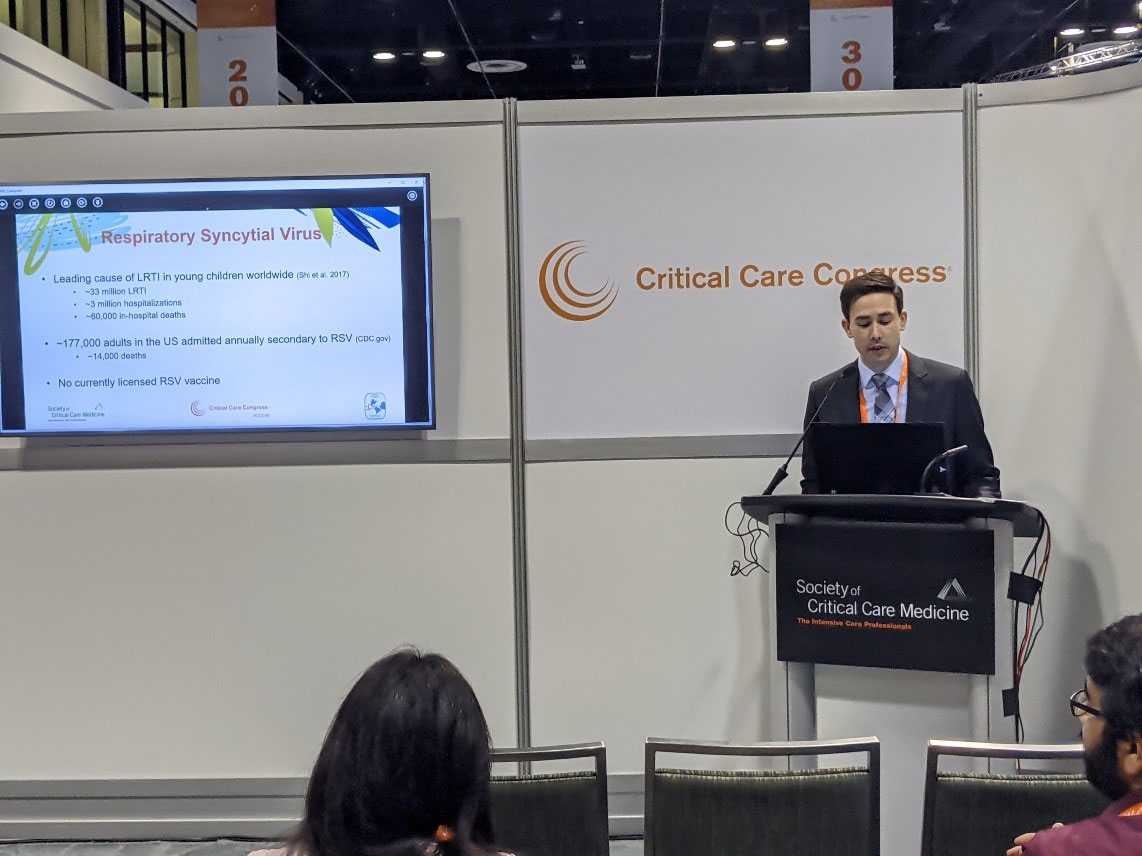Do you need external funding for any part of the fellowship?
No, all of our fellowship positions are funded through the Department of Pediatrics. However, fellows are eligible for funding through a National Institutes of Health (NIH) T32 Training grant through the Fraternal Order of Eagles Diabetes Research Center.
What tracks do you offer?
We have one 3-year clinical track with a focus on clinical care, research and/or education. A fellow and their scholarly oversight committee (SOC) will continuously reevaluate progress and goals to refine learning experiences. The SOC is assembled by the fellow and consists of the fellow’s primary research mentor(s) and senior faculty members with expertise relevant to the fellow’s career interests. At least one member of the SOC is from a different clinical division, which provides additional career perspective.
We have the opportunity of a 2-year fellowship for those who have already completed a Pediatric Subspecialty. This track will be more focused on clinical care provided the research requirement has been fulfilled by the previous pediatric fellowship.
University of Iowa Stead Family Children's Hospital is Iowa's only comprehensive children's hospital. We have 190 pediatric beds and 28 PICU beds, with approximately 15,000 admissions per year. Our first children's hospital opened in 1919, and our beautiful new facility was opened in 2017. Last year, we cared for children from all of Iowa's 99 counties as well as 45 states and 20 countries.
Am I going to see enough volume and diversity in Iowa?
We provide care for the majority of pediatric endocrine patients in Iowa, and our catchment area also includes a significant portion of Missouri, Minnesota, Illinois, Wisconsin, and Nebraska. Our patients come from diverse backgrounds in terms of SES, race, and ethnicity, providing a rich clinical and social experience. Our 28-bed PICU cares for both medical-surgical patients as well as the congenital heart population for the catchment area. We are the only level-1 pediatric trauma center in the state and the state’s only pediatric transplant center for solid organ and BMT patients. Our consultative services include the whole range of pediatric subspecialties and surgical specialties.
Does the division provide educational funds?
Yes. Each fellow is provided funds to travel to at least one conference through the division. Fellows are also encouraged and support to apply for other travel grants to attend additional conferences. Funding may potentially be provided through a mentor’s lab if a poster is accepted for presentation. All first-year fellows will also be fully funded to attend the national PICU Bootcamp.
Is there a simulation component to the education program?
Yes! Our simulation program varies from active in-situ PICU simulations of acute events, vascular access simulations, ECMO simulations, and transport call simulations to delivering bad news simulations with standardized patients. We also participate in the first year fellow Bootcamp through CHOP for incoming first years. We are starting a series of simulations with standardized patients that address topics of diversity, equity, and inclusion this year which we are very excited about!
Are there opportunities for electives during fellowship?
Yes, in your senior years there is time for electives. Elective options include: PICC line training, Echo-lab, Cath-lab, Burn Unit, Cardiothoracic Surgery, and ECMO to name a few. Fellows choose their area of interest and electives are created from there.
How does the program help fellows prepare for boards?
Our Faculty-led board review occurs every three months in our core curriculum requiring fellow participation. In addition to that our core curriculum is designed to address all the ABP-board content over a period of 18 months, which gets then gets repeated and adjusted over the years to account for ABP updates in board content.
Does the University of Iowa offer master’s programs?
Yes, we will offer the option of completing a master’s program through the University of Iowa. Candidates will have a separate application process to qualify for funding through the GME office. The expectation is that the master’s program will fulfill all of the requirements set forth by the American Board of Pediatrics for research. These will be continually evaluated by mentors within the masters programs as well as within the division through your scholarship oversight committee.
Is there anything fun to do in Iowa, or is it just cornfields?
Iowa City has a small town feel but all of the amenities of a big city. Our visitors are always amazed at what a hidden gem we have here, and we'd love to show and tell you about it. Whether you prefer arts, history, music, outdoor activities, Big10 college sports, farm-table restaurants, or even craft breweries, you will find something to love about Iowa City.

 Educational Conferences
Educational Conferences